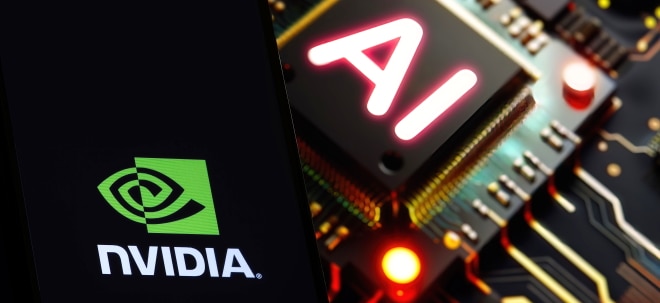
- Stocks
Nvidia’s revenue likely doubled
Do you want to know how to make money from this?
Register for free and get expert advice, access to a training course and webinars.
Key points:
- Nvidia is showing impressive revenue growth, particularly in the field of artificial intelligence.
- Investors expect even higher results from the company, despite its already remarkable performance.
- There is a risk that the company may not meet the high expectations of investors, which could negatively impact its stock price.
Nvidia will release its second-quarter financial report on Wednesday, August 28, which is expected to show more than a doubling of revenue. However, given the company’s impressive results in previous periods, AI-focused investors are expecting even higher figures.
High investor expectations could hurt stock performance
Nvidia’s second-quarter financial results, set to be published on Thursday, could significantly impact the ongoing AI market rally. A deviation from Wall Street expectations could either accelerate or slow the current growth.
The company’s stock has shown impressive performance this year, increasing in value by more than 150%. This has led to a substantial rise in Nvidia’s market capitalization and positively impacted the S&P 500 index. However, on Monday, the company’s stock prices declined, exerting some pressure on the index.
According to consensus forecasts, Nvidia’s revenue in the second quarter may grow by approximately 112% year-over-year, reaching $28.68 billion. At the same time, adjusted gross margin is expected to decrease by more than 3 percentage points to 75.8% compared to the first quarter. This is due to increased expenses related to expanding production capacity to meet the growing demand for the company’s products.
Are Nvidia’s AI investments justified?
The unprecedented demand for computing power driven by the development of artificial intelligence, led by major tech companies like Microsoft, has resulted in a sharp increase in demand for Nvidia’s graphics processors. These chips, with their unique characteristics, have become essential tools for creating and training AI models. As a result, Nvidia has significantly strengthened its market position and reached a record market capitalization.
However, despite these impressive results, investors are increasingly concerned about the company’s future growth prospects. Questions about Nvidia’s ability to meet the market’s high expectations and maintain its growth pace amidst a potential slowdown in AI investments are putting pressure on its stock price.
Delays in the production of the new generation of AI chips, Blackwell, may also add to the uncertainty. Despite the company’s optimistic forecasts, analysts point to several technical challenges that could delay the product’s launch.
Q3 forecasts
The research group SemiAnalysis warns of a possible slowdown in Nvidia’s revenue growth in the near future. Increased production costs and higher prices from key partners could negatively impact the company’s financial results.
Despite the expected revenue growth in the third quarter, comparisons with previous periods characterized by exponential growth will be difficult. Analysts explain this as a natural pattern where large companies eventually face a slowdown in growth.
To compensate for potential losses from delays in the production of new Blackwell chips, the company may increase shipments of the previous generation of processors. Although these chips are less powerful, they are still in demand in the market.
Additionally, investors are awaiting information from the company on its plans to overcome restrictions on the export of advanced chips to China.
Do you want to know
How to make money from the news
Register for free and get:
- Expert consultation;
- Access to the training course;
- Opportunity to participate in webinars

